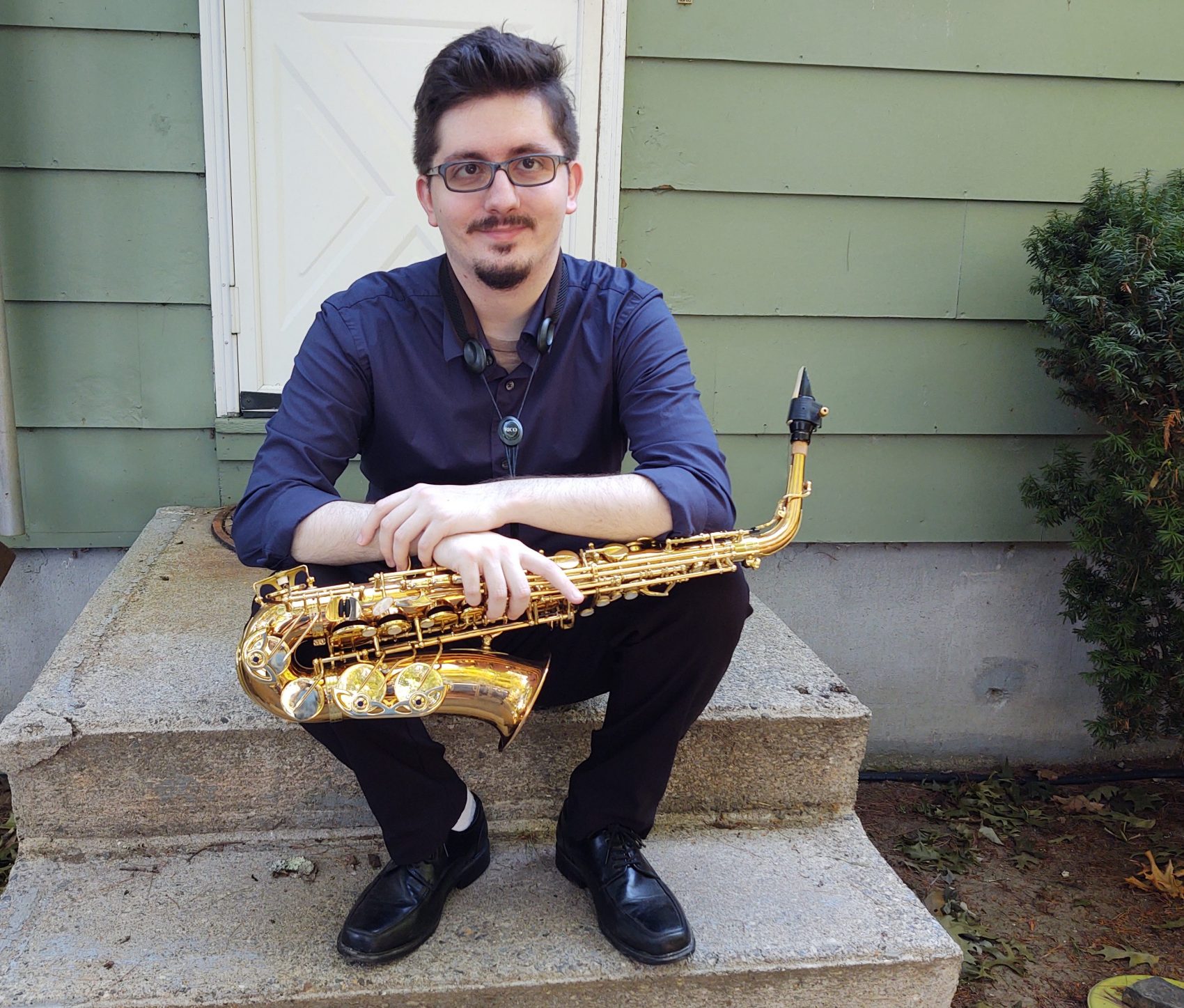UConn’s Office of Undergraduate Research each year provides Summer Undergraduate Research Fund (SURF) awards to support full-time undergraduate students in summer research or creative projects – an initiative that continues this year, despite the challenges presented by the COVID-19 pandemic.
SURF awards are available to students in all majors at all UConn campuses. The students’ project proposals are reviewed by a faculty committee representing various schools and colleges, and SURF award recipients are chosen through a competitive process. Each SURF award winner is supervised by a UConn faculty member.
This summer, UConn Today will take a look at various 2020 SURF scholars and their work.
Name: Ian Sauco
Hometown: Brooklyn, Conn.
Year: Rising Senior
Major: Music composition and English
Summer research project: Saxophone Repertoire and Technique – An Extensive Musical Development with faculty mentor Greg Case, an instructor in the School of Fine Arts.
What is your summer research focused on?
In essence, it is a study of the saxophone in greater depth so that I can achieve a higher degree of musicianship. That is the main goal, which will culminate in me putting on a recital in the fall. It will now be a little trickier with the pandemic, but it should still happen.
I decided last semester that wanted to put on a recital and wanted that to be a culmination of everything I have learned in the past few years and everything I studied with my professor, Dr. Case. I also saw an opportunity to be part of the American Saxophone Academy, which was coming to the state. I could study with American saxophone greats like Dr. Jim McAllister, Professor Carrie Koffman, and Otis Murphy.
I really wanted that opportunity because I figured it would make me a better performer and they also do a lot of work with chamber ensembles. I am now the soprano player of the UConn saxophone quartet this upcoming semester. There was going to be quartet work involved with the academy to help me a better leader in an ensemble, but unfortunately, it did get canceled. It was online so I did get lessons with those professionals. It was not exactly the same experience, but I was grateful to have it.
What music groups are you involved with on campus and how did you first get interested in music?
I am a member of the UConn saxophone quartet, the University wind ensemble, Collegium Musicum (a choir group), and a lab band. My parents always played music around the house when I was growing up. I remember listening to Mozart and Beethoven. My mother, Renè, was a self-taught pianist and a huge inspiration to me. When fifth grade came around and it was time to pick an instrument, I loved the sax and trombone. I picked the sax, never regretted it, and have been playing for 11 years.
In high school, I was more leaning to become an author, but realized I didn’t want to give up music. It was the most fun thing I did. I asked if I could do this for a career? Now, I hope to go to graduate school for music composition. My composition professor, Dr. Kenneth Fuchs, has been a huge inspiration on my writing. I would someday like to be a composer for film, TV, or video games.
We hear a lot about research in areas like science and medicine, but maybe not so much music. Why is music important?
Music is the thing that gives people the most joy. This is how we have expressed ourselves throughout history. If you look around now, people always have their headphones in. Sometime they are listening to podcasts, but most times they are listening to music. Music has evolved so much over the years. If you see where we have come in 300 years and even farther back, from Bach to rappers, it doesn’t change slowly like evolution. It changes quickly because we are so invested in music. Our tastes are currently evolving quicker and quicker. Music is such a ubiquitous thing to the world that it will never go away.
What kind of music do you listen to for your personal enjoyment?
I listen to The Weeknd, I love saxophone quartet music, various classic music, R&B, Pentatonix, movie soundtracks. I like a lot of weird eclectic things like that.
How has the COVID-19 pandemic affected your research?
Luckily, my research does not involve studying people, which helps. A lot of my work would have been practicing at home anyway, so it has not been affected aside from the not being able to go to ASA in July. I have weekly lessons with my professor virtually, so that is a little challenging. I am probably a lot better off than other people.



